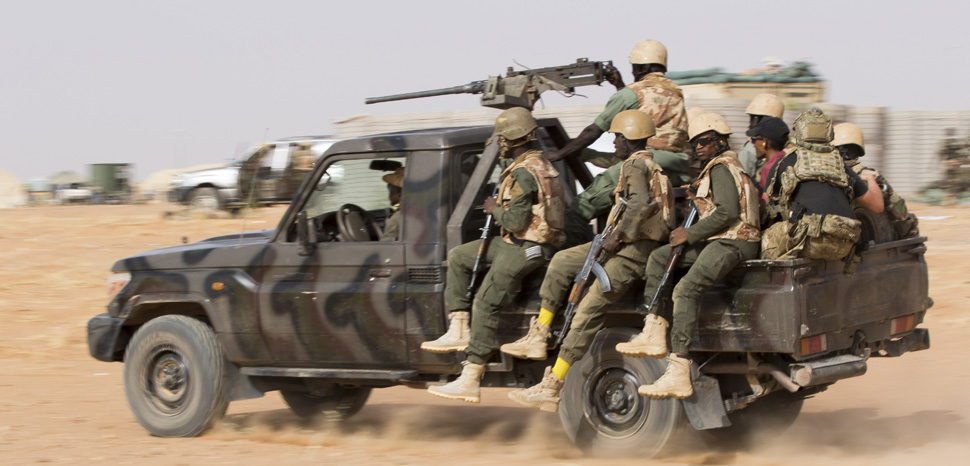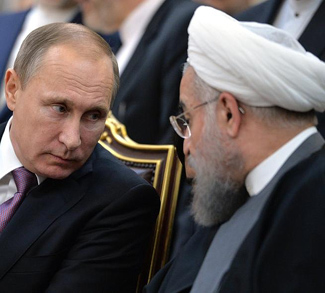In its latest bid to confront the growing threat emanating from armed terrorist groups, Burkina Faso’s government has unveiled a program that would enlist civilian volunteers to participate in the country’s counter-terrorism campaign. The announcement, which came 3 days after an attack on a village market that resulted in 36 civilian deaths, also serves as a tacit admission of the military’s lack of capacity to address the omnipresent threat of armed groups traversing the country’s northernmost territories.
Since 2015, Burkina Faso has fallen victim to a growing spate of high-casualty and brazen attacks that have ravaged the Sahel region. Targets have included the rural countryside, churches, and other high-profile targets, such as the 2018 attack on the country’s military headquarters and French embassy, carried out by Jama’at Nasr al-Islam wal Muslimin (JNIM). As an affiliate group of Al-Qaeda in the Islamic Maghreb (AQIM), JNIM is one example of a proliferating number of Islamist and communal terrorist organizations that have formed in the last 5 years.
As a member of the G5 Sahel Joint Force, Burkina Faso’s situation is not unlike that of its fellow coalition members, which include Chad, Mali, Mauritania, and Niger. However, in an unfortunate circumstance of geography, Burkina Faso is nestled at the midpoint of the region, making its northern borders particularly vulnerable to militants traveling across a territory often characterized by its lawlessness.
At present the Sahel contains a 13,000-strong deployment of UN Peacekeeping forces, coupled with a 4,500 troop contribution made up of French forces supporting Operation Barkhane. Yet, in spite of their presence, the security situation in the region continues to deteriorate, with reasons that more often than not, rest squarely on the competency and means of the G5 Sahel militaries.
For its part, Burkina Faso’s armed forces remain woefully underdeveloped, and the military’s role in the 2011 Burkinabe Spring, and subsequent 2014 Burkinabe Uprising, called to attention the soldiers’ dissatisfaction over wages and benefits. Morale of the G5 Sahel armies has been further undermined by an incessant deluge of attacks on military posts. In the first few weeks of 2020 alone, attacks on G5 Sahel forces have resulted in headline-grabbing casualty figures that include the deaths of 89 Nigerien soldiers and 19 Malian soldiers. Burkinabe soldiers have also endured a fair share of attacks in recent weeks, with a half-dozen soldiers killed in a roadside bomb attack.
The civilian recruitment program, which will provide small arms, communications equipment, and two weeks’ worth of training, appears imprudently confident that civilians will be able to stave battle-hardened militias until security forces can provide relief. Yet, with militants overrunning military posts on a weekly basis, the co-opting of civilians for manpower could backfire by making participating villages more susceptible to attacks. To intimidate local villagers, armed groups have already singled out individuals for unsubstantiated claims of conspiring with government authorities. Such conditions create a potent and problematic deterrent to the government’s recruitment efforts, while also making it unlikely that the new initiative would extend to territories in the greatest need of protection from armed groups.
Furthermore, in enlisting civilians to join the war effort, Burkina Faso risks exacerbating the disjointed structure of its security forces, while also potentially giving rise to new militias. Following the program’s approval by the National Assembly, Defense Minister Cheriff Sy offered a terse explanation of the vetting process, which will include a “moral investigation, while also adding that incentives will be provided to participants to ensure demobilization in peacetime.
The relative ease with which armed groups have been able to plan and execute deadly attacks in Burkina Faso, and in the broader Sahel, speaks to the disconcerting theme of an attribution problem in assigning responsibility for the assaults. The amount of claimed attacks is dismally low, suggesting that the groups involved represent a complex number of interests that goes beyond establishment of a caliphate or broad ambitions to supplant the state. The end result is a perplexing problem of blurred lines between those groups engaged in pursuit of political objectives (secessionists and Islamist groups) and those acting in accordance with their economic interests (criminal gangs and traffickers).
Beset with pressure to present victories to the public, the armed forces have drawn increased scrutiny from activist groups for alleged human rights abuses. Documented atrocities frequently cite ethnic affiliation as a key determinant in the summary executions carried out by Burkinabe soldiers. This detail is frequently propagandized by terrorist groups to boost recruitment and deter civilian cooperation with the government.
With civilian-military relations at a nadir, the prospect of the government’s latest recruitment effort providing any level of succor to the security forces appears improbable. The poor training and lack of modern equipment provided to new recruits has made traditional methods of recruitment, like the one recently announced by fellow alliance member Mali, difficult. The lack of confidence in President Roch Marc Christian Kabore’s handling of security extends to the military, as seen in the incredulous public response to the latter’s claims of success, such as in the killing of 100 militants last December.
To truly resolve its understaffing dilemma, Burkina Faso’s military will require a long-term investment that emphasizes development of airpower and quality training for existing forces. Until that happens, the public’s confidence in the military is likely to plunge, and with it, the ranks of its already overstretched forces.




